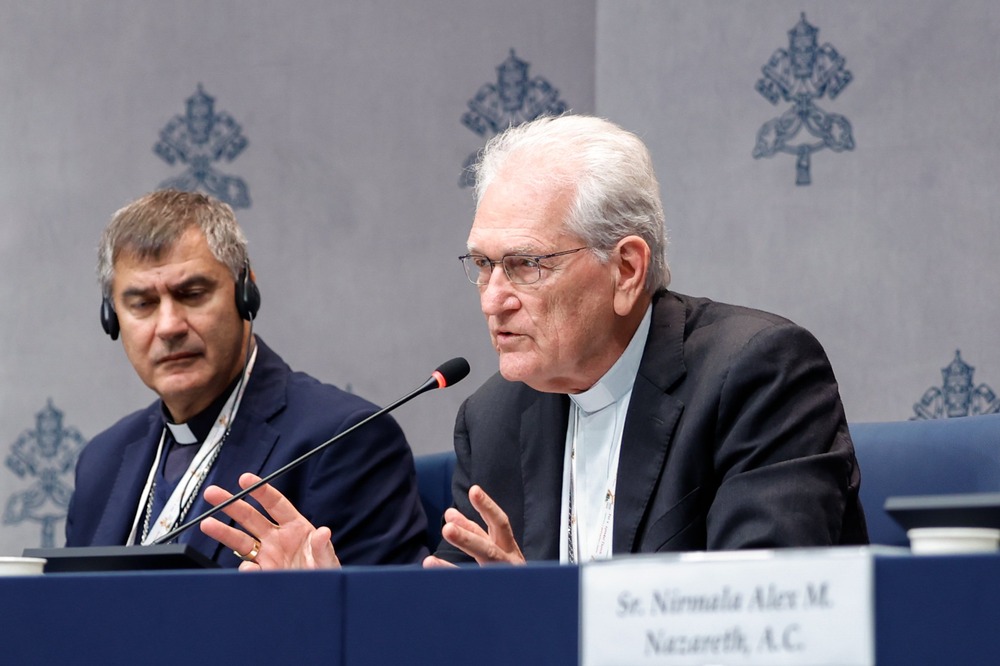
Cardinal Leonardo Steiner of Manaus, Brazil, speaks during a press briefing on the synod at the Vatican Oct. 15, 2024. (CNS/Lola Gomez)
The Synod of Bishops for the Pan-Amazon region, which met in Rome in 2019, paved the way for the current synod on synodality, said the region's top cardinal.
Before the synodal process began in 2021, "We were a church on a mission, now we are a synodal church on a mission," Cardinal Leonardo Steiner of Manaus, Brazil, said at a Vatican briefing Oct. 15. "The synod on the Amazon helped open up this experience (of synodality) and the participation of everyone."
The synod on synodality is more focused on how the entire church community can learn to listen, discern and respond to God's will and carry out the mission of the church than at specific issues. But part of that is looking at ways to expand the role and responsibility of all the baptized in the life and mission of the church.
In contrast, with only 172 priests to serve about 1,000 communities in the region, the synod on the Amazon did discuss specifics such as the possibility of ordaining married men and opening the diaconate to women as part of expanding the role of the laity.
"For more than 100 years, the communities in our region have lived without the presence of priests," Steiner said, and yet, "the communities remained alive, organized, praying, celebrating and having their own ways of prayer" thanks to the commitment and faith of laypeople, and especially women.
"Women are the ones who have led the communities forward, and today they are also leading our communities. Several women in our archdiocese receive ministries," including official recognition as ministers of the Eucharist, ministers of the Word of God and community leaders, he said.
Bishops in the Amazon region are now proposing to some very remote communities "to receive and be able to celebrate some sacraments, such as baptism, without the presence of a priest," he said. When it comes to day-to-day ministry, "many of our women are true deaconesses, without having received the imposition of the hands."
Advertisement
Steiner said they would like to call these women "deaconesses," but they do not want to "confuse them with the ordained ministry," and so, for now, they have not found a title that is "suitable."
"But it is admirable," he said, "how much women are responsible for our church."
"Our church would not be the church it is without the presence of women," the cardinal said.
Steiner said he believes that if the female diaconate existed in the church in the past, "why not restore" it as was done after the Second Vatican Council "in restoring the permanent diaconate for men."
"We mustn't stop reflecting on these issues" as part of a continued exploration of "the fundamental mission of women in the church," he said. It's not a "gender issue, it is simply a matter of vocation," the vocation of women in the church and "in our communities."
Speaking about the issue of admitting married men to the priesthood, Steiner said, for some places, "this would not be a difficulty."
Pope Francis "did not close the question," he added. However, the pope is very aware this is problematic elsewhere and is sensitive about "the communion of the church," therefore, "he didn't want to take that step."
The cardinal said dialogue should continue in a way that shows the importance of the local community rather than just "looking at the church as a whole."
"The church only exists because there is the community, and that small community forms the parish, and the parishes form a diocese and then there is the universal church. Maybe we need to go a little deeper into this question of ministeriality and community," he said.






